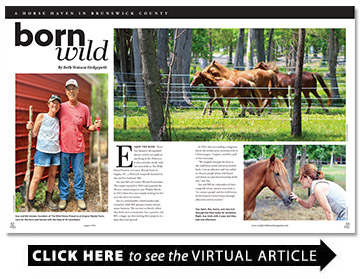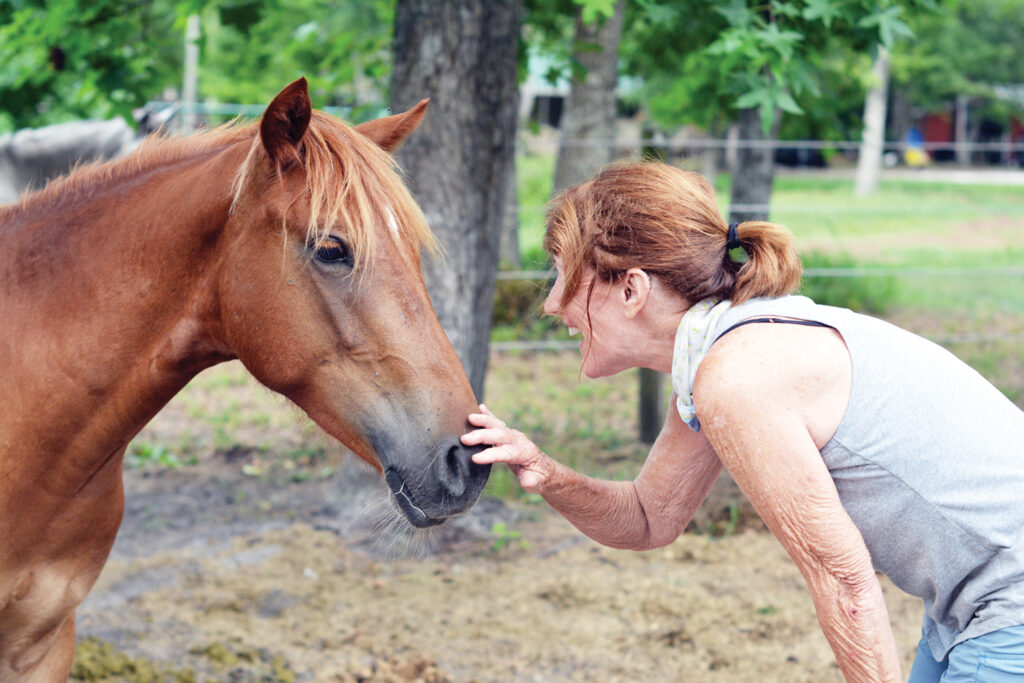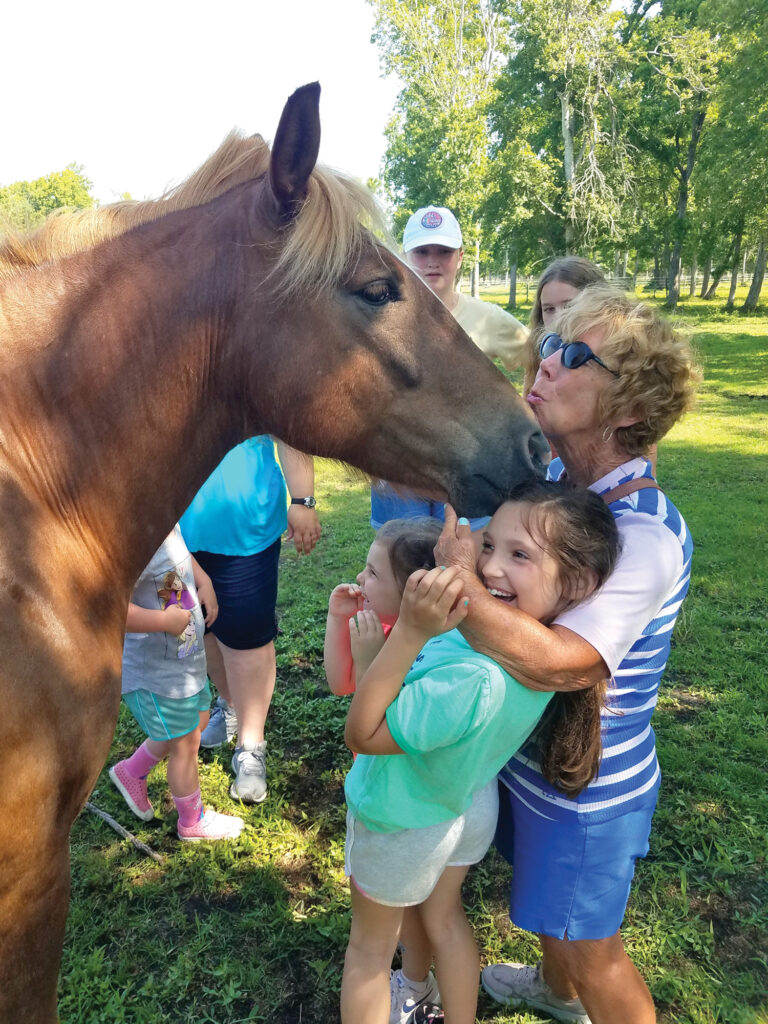Born Wild
A horse haven in Brunswick County
BY Beth Watson Hedgepeth
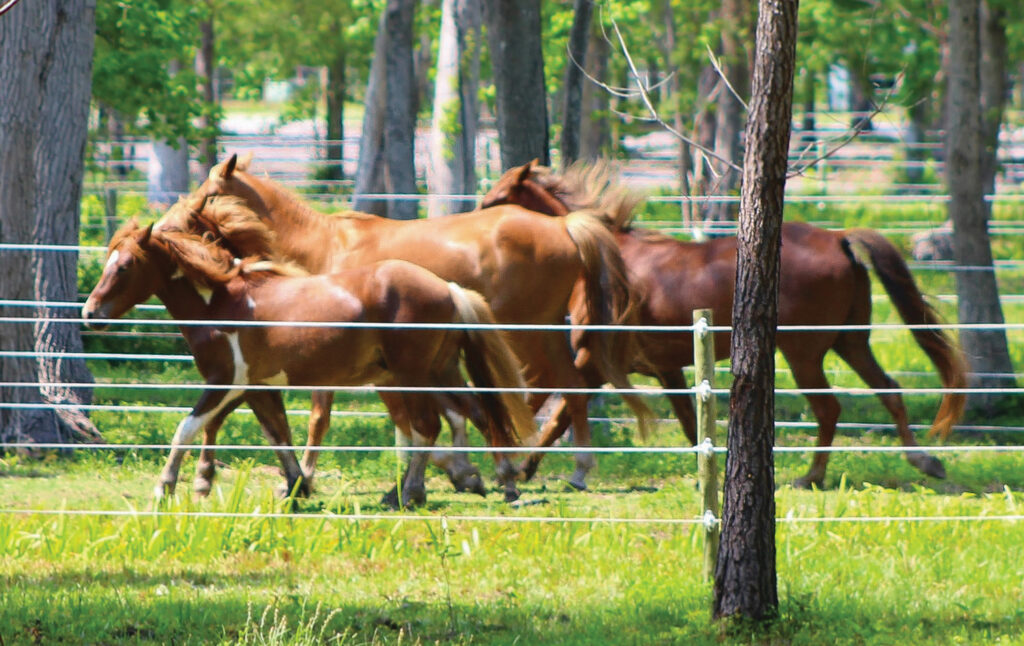
Enjoy the ride. That’s Sue Immen’s oft-repeated phrase, which can apply to anything in life. However, it also coincides nicely with her retired life at The Wild Horse Preserve at Grayce Wynds Farm in Supply, NC, a 501(c)(3) nonprofit founded by Sue and her husband, Bill.
Sue and Bill call Grayce Wynds Farm home. The couple married in 2010 and acquired the 30-acre coastal property near Holden Beach in 2012 when they were simply looking for five acres for their two horses.
Sue is a retired public-school teacher and counselor, while Bill operates a home maintenance business. The two met at church, where they both serve as musicians. Sue, a pianist, and Bill, a singer, say that owning their property is a door that God opened.
In 2014, Sue was reading a magazine about the annual pony penning week in Chincoteague, Virginia, and felt a pull to buy mustangs.
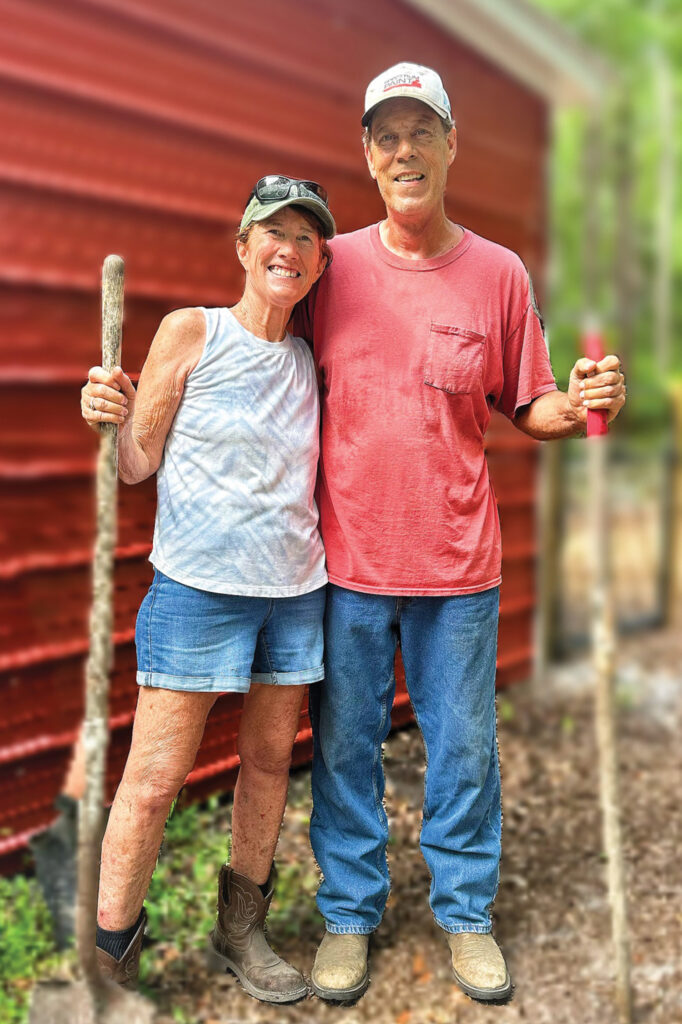
“We stepped through the door to the wild horse world and never looked back. I am an educator and was called to educate people about wild horses and throw in some horsemanship skills, too,” says Sue.
Sue and Bill are cofounders of their nonprofit whose mission statement is “to connect people and the wild horses of the Eastern United States through education and recreation.”
The grand opening of the preserve was in 2019, but their first two mustangs were purchased in 2014 from the annual pony roundup, swim and auction in Chincoteague. The farm has 45 volunteers who complete the daily chores and help host public events.
Those first two ponies, Sunny and Jess, reside together with three other Chincoteague ponies, collectively known as the Fantastic 5.
Grayce Wynds Farm: By the Numbers
- 30 Acres
- 28 Horses
- 20 Horses born in the wild
- 3 Domestic horses previously owned
- 1 Local blind rescue
- 4 Boarded horses
- 45 Volunteers
- 2 Co-founders with 1 mission
Sunny is one of the go-to residents for pony rides when kids visit. He is also one of the two ponies in Sue’s book series, Sunny and Jess. The third book was recently published, titled Sunny and Jess: Become Ambassadors for the Chincoteague Ponies.
Sunny, a chestnut gelding with a sun drop star marking on his face and a blue fleck in his brown eye, was sired by the most famous Chincoteague stallion. Surfer Dude, who died at age 23, was well-known for his prowess and his handsome looks. He was known to have at least a dozen mares in foal each year and as many as 16 mares in his herd under his protection and leadership. One of his offspring, Riptide, has carried on his legacy as a stallion on Assateague Island; Riptide is Sunny’s half-brother.
Sue often returns to the pony penning week, which is held during the last week of July. She takes a group each year and guides them through the full week of action. Activities include roundups and herding horses down the beach, the famous swim, the wild horse parade down Main Street, and the wild pony auction. Sue also shows the way over to Assateague Island National Seashore in Berlin, Maryland, to find wild horses.
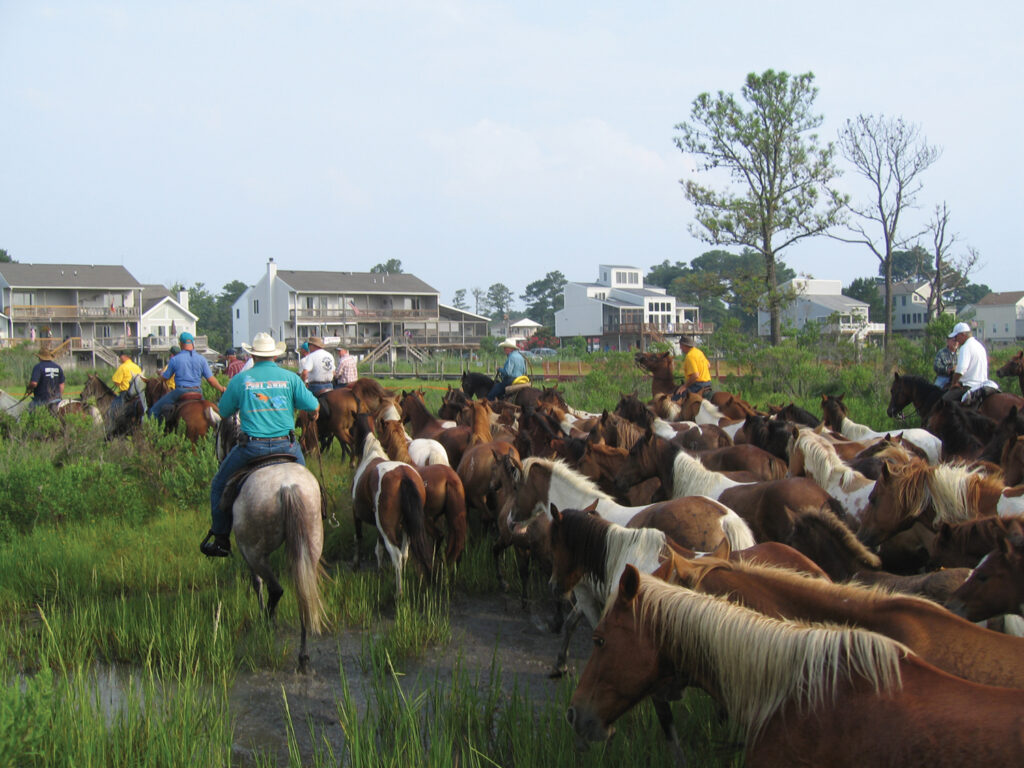
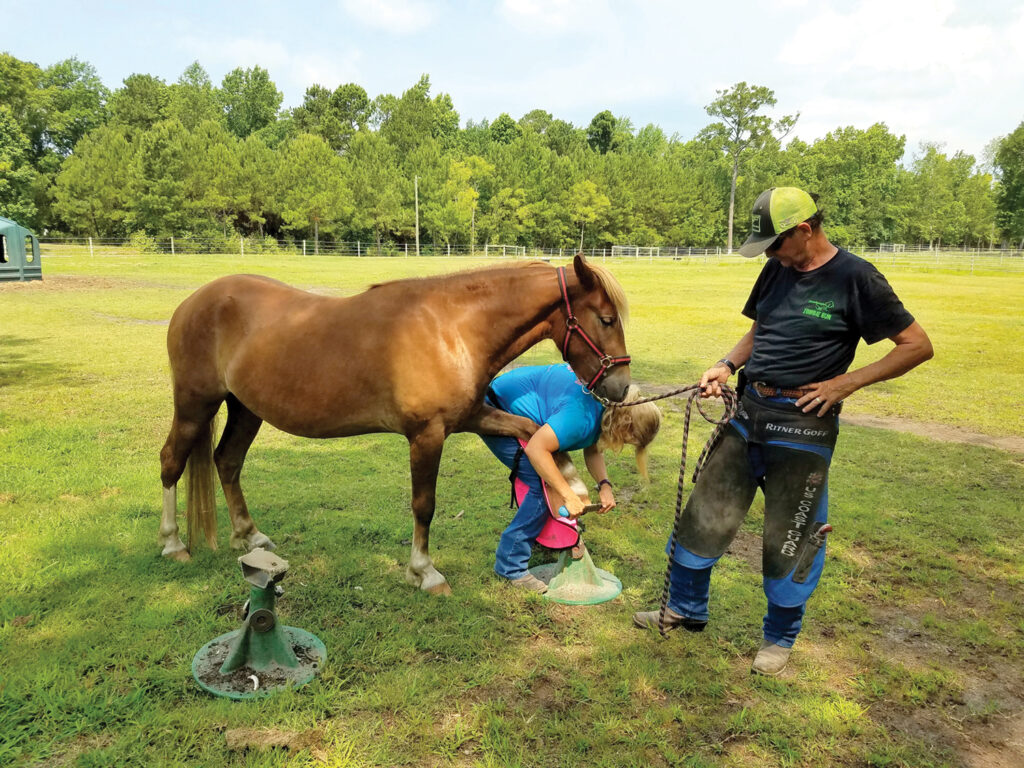
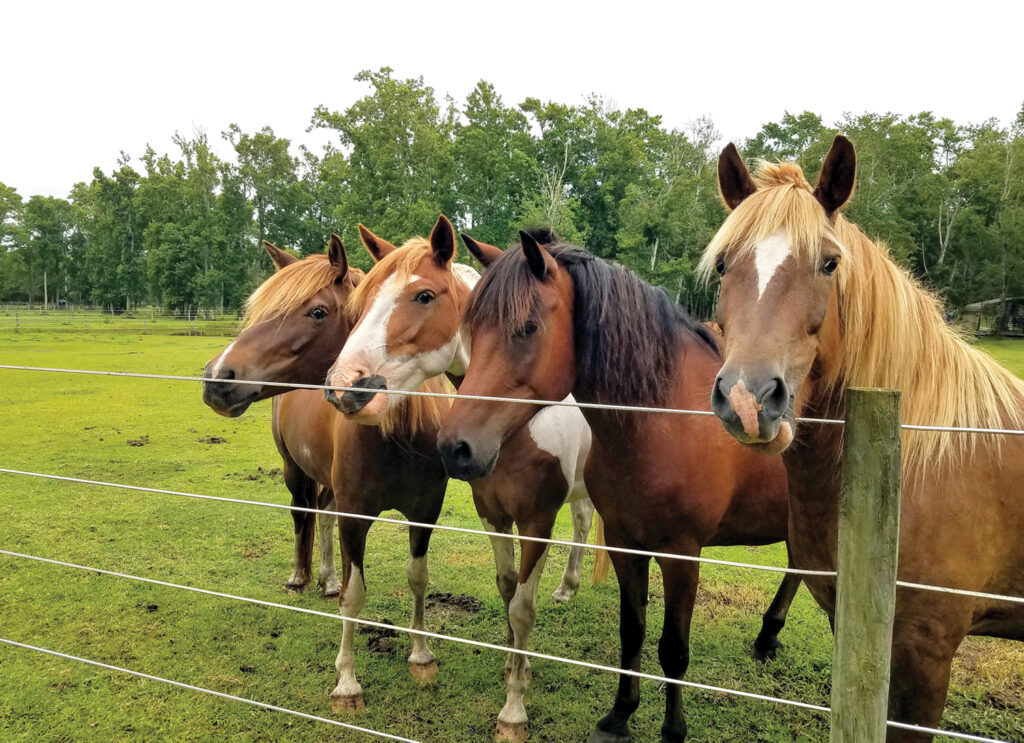
While the focus of the farm is to connect, educate, and inspire, the Immens realized that guests would have different goals when they visit.
“I thought the farm could be a steppingstone,” says Sue.
A steppingstone it is. Some visitors and volunteers have caught the wild horse bug and learned where and how to visit the different places in North Carolina and other states with wild horse herds. Many visitors find just what they are looking for at the farm, and that is enough.
At Grayce Wynds there are wild horses from nine areas in the United States.
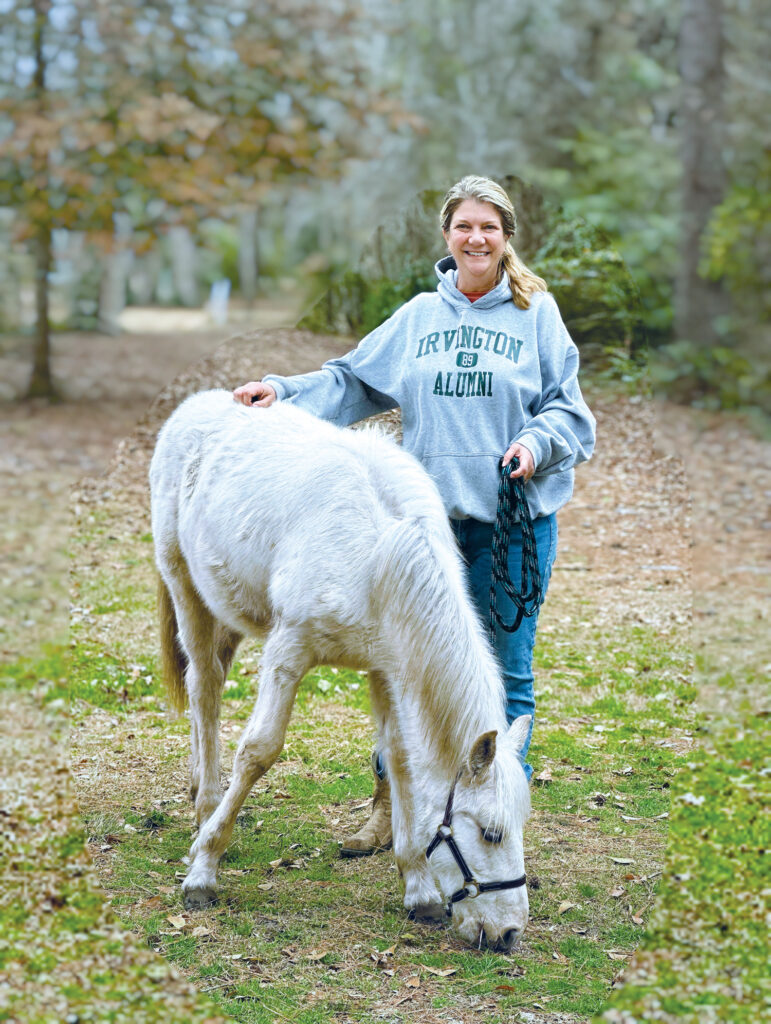
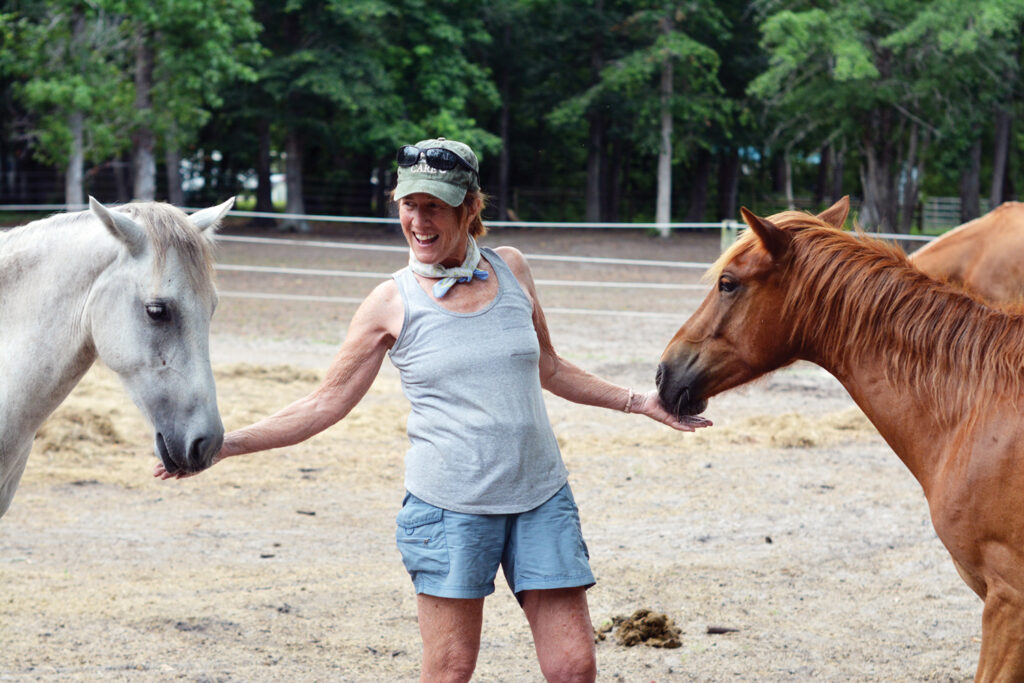
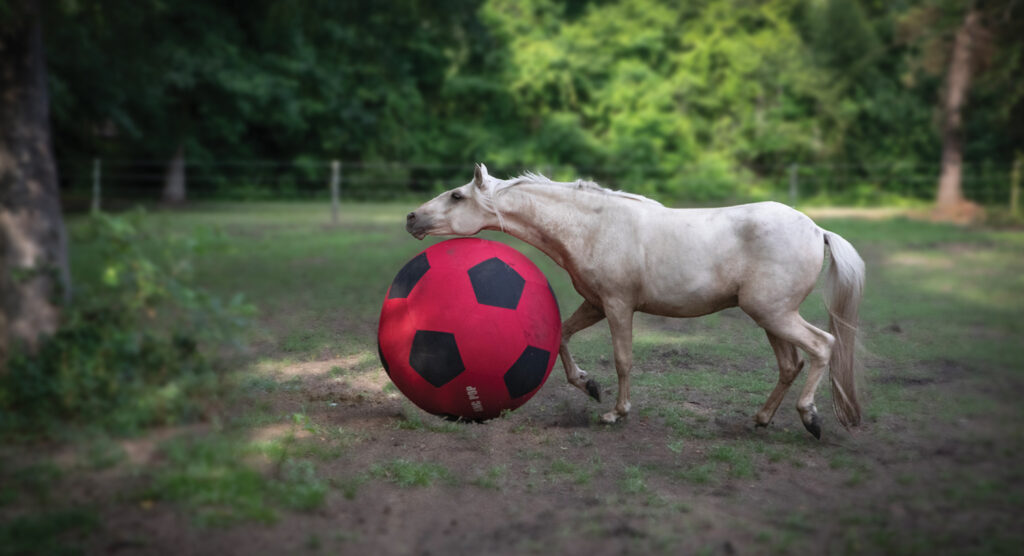
“It’s really amazing to see all of these different wild-born horses together. Where else can you go to see that?” says Bill.
Bill makes an excellent point. The Immens have a special group of horses and volunteers who serve their community in educational and inspirational ways.
Volunteer Susan Mosher moved to Holden Beach from Raleigh in 2021, and she soon learned that this horse haven was close by. The little girl from New York who never got her pony as a child visited the Christmas event at Grayce Wynds in 2021 and never left.
“I became a volunteer, and then I went to Chincoteague with Sue in 2022,” says Susan.
Susan bought Finnegan at the auction, and he’s been at Grayce Wynds for the last two years.
“He’s my prince in shining armor,” she says.
She spent time with him in the pasture when he was a foal, and he would fall asleep on her.
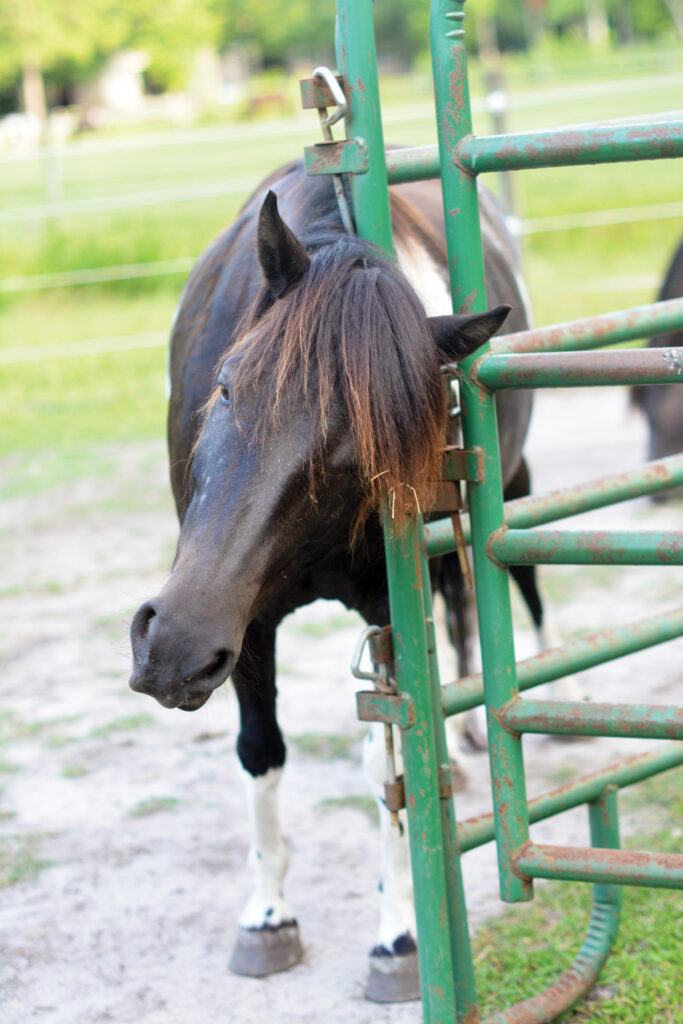
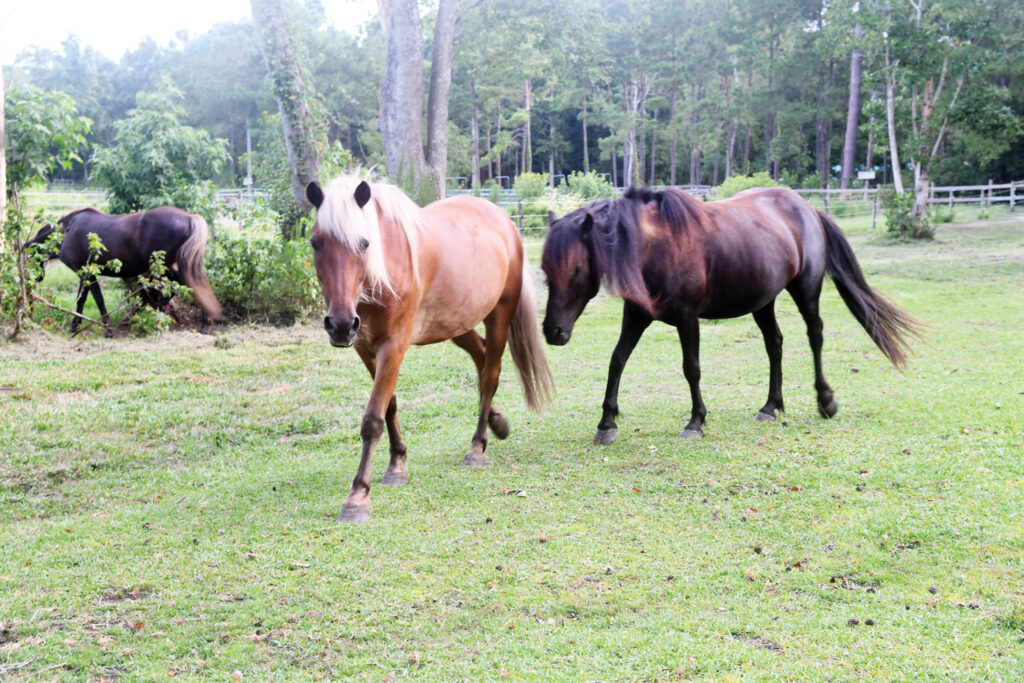
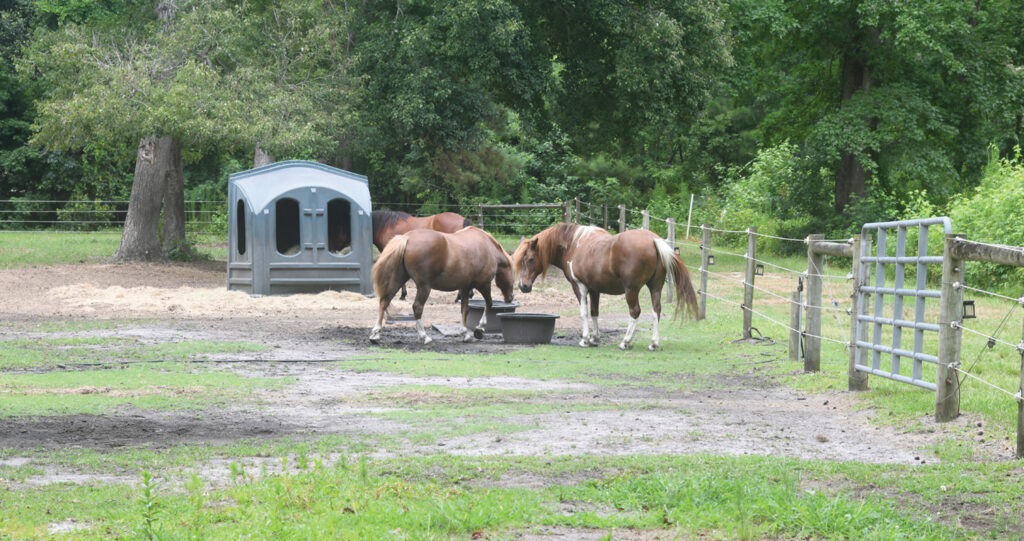
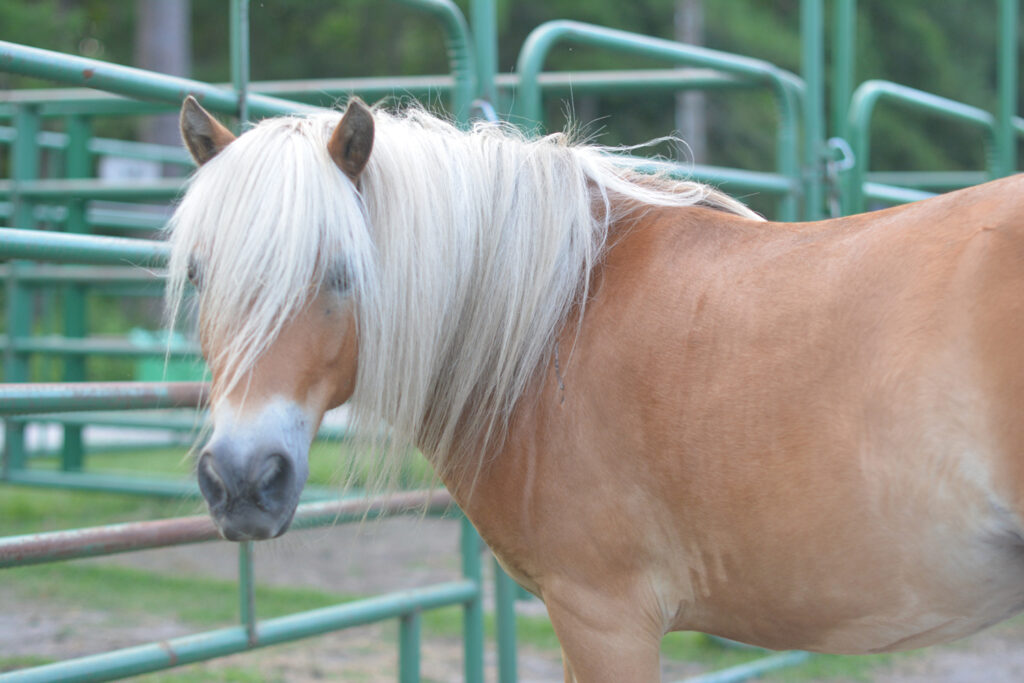
“Sue explained that Finnegan wouldn’t go into REM sleep until he felt safe, so that was why he fell asleep when he was with me,” she says. “I was his herd.”
Susan has learned a lot while owning and training Finnegan. She thought he would enjoy a toy, so she bought him a ball. Eventually that turned into a huge soccer ball that he loves to kick around the pasture. Susan has clicker-trained him with the ball as well as other things that many people may not train their horses to do.
Susan says that Grayce Wynds is just the right amount of physical activity for her, and she also helps with any digital needs that the Immens have.
“It’s my haven,” Susan says. “If I’m stressed or if I’m not feeling well, I still go help, and I’m always glad when I leave. Those five Chincoteagues are my family, and the older ones are helping me raise Finnegan.”
Susan’s Finnegan is related to Sue’s Jess, the one nicknamed Jess the Mess. Jess is the second half of the duo in Sue’s book series with Sunny.
Jess’s grandsire is Tornado, who is also Finnegan’s great-grandsire. Jess’s registered name is Royal Jester, and Finn’s is Royal JT Finnegan. The initials JT stand for Jess and Tornado.
When Finnegan is 3 he will begin training to be ridden, but for now he’ll enjoy growing and learning, playing in pasture one, and being loved by Susan and other volunteers.
While the farm holds public events, the farm is not open to the public except through individual appointment.
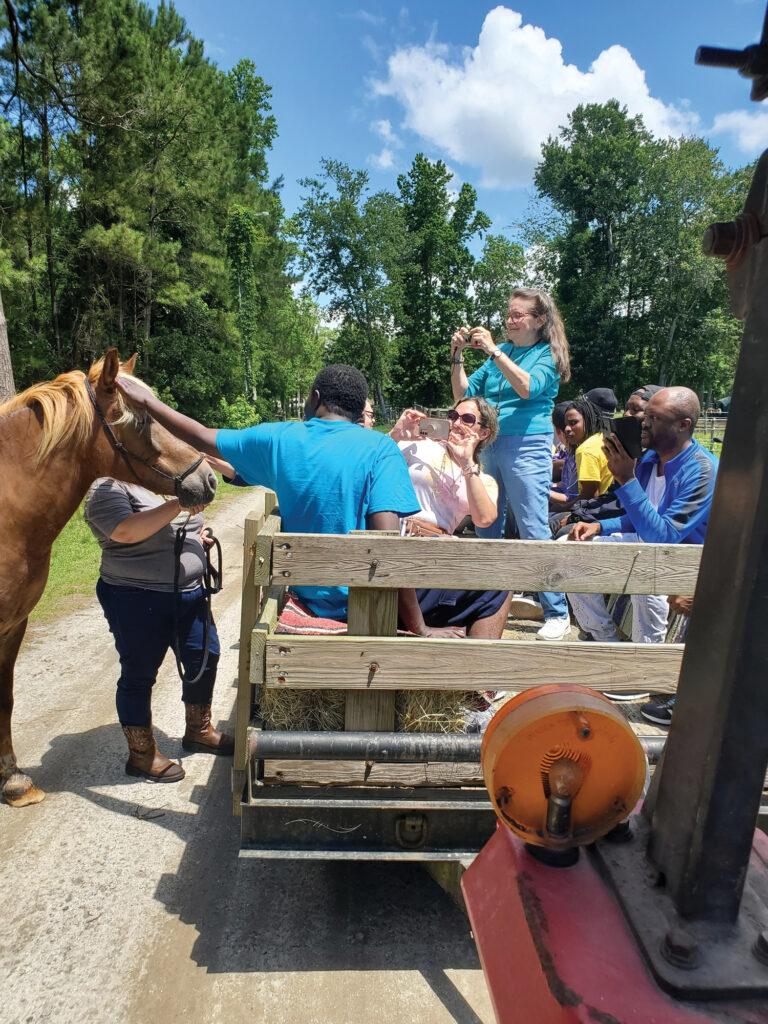
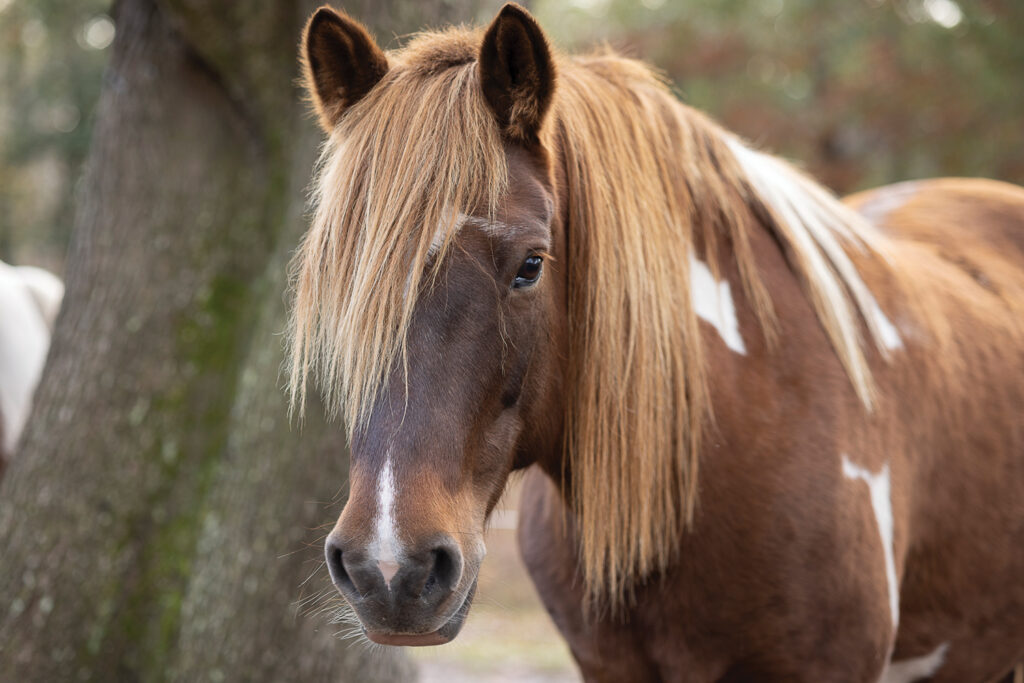
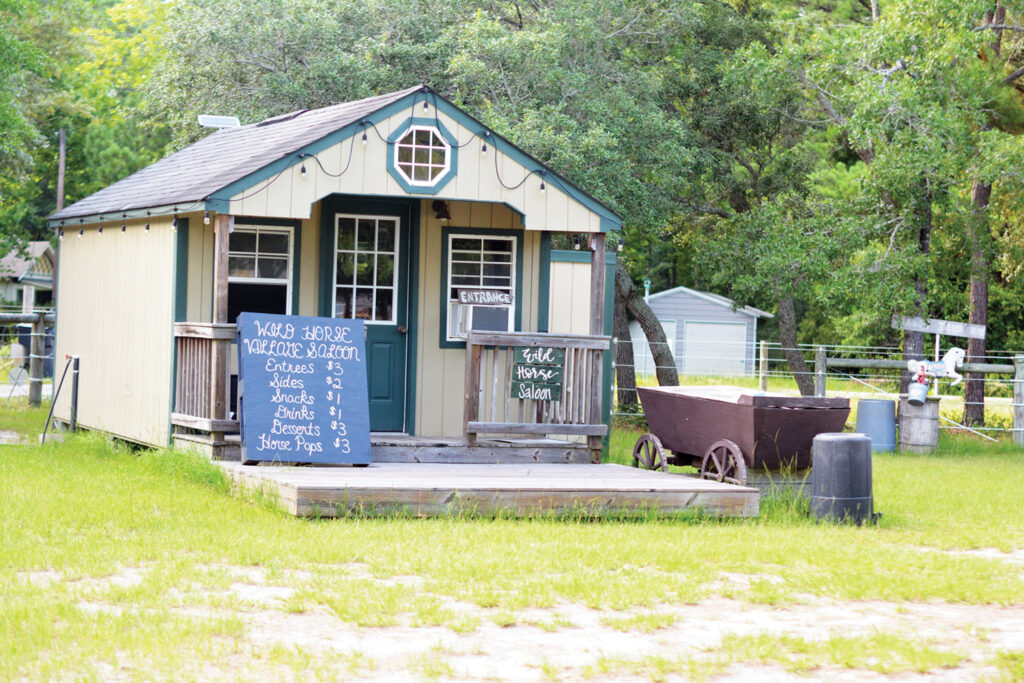
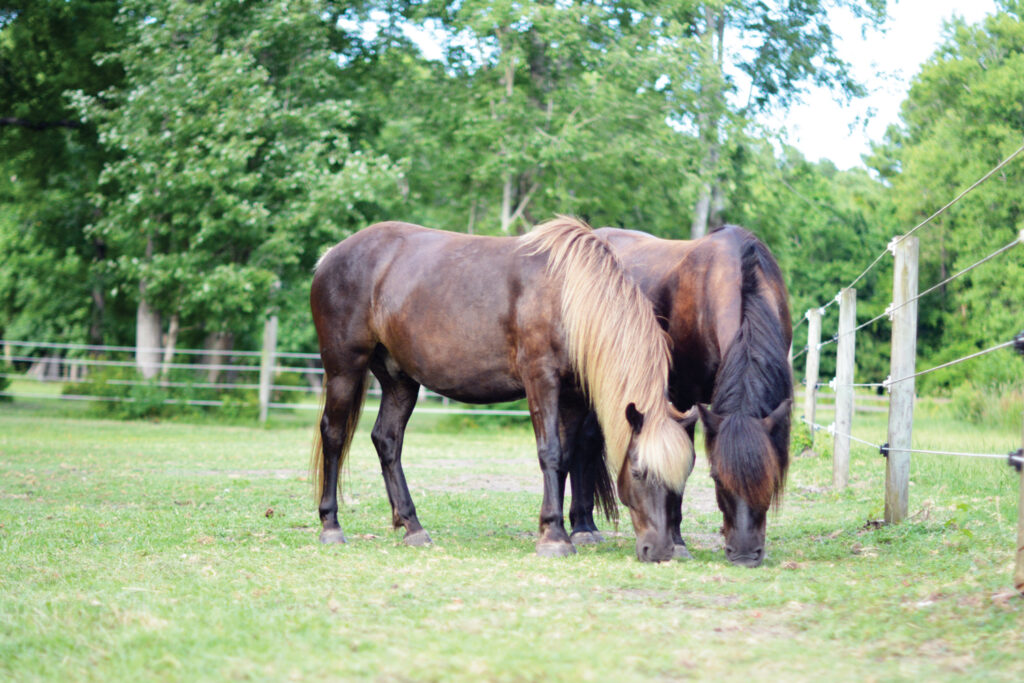
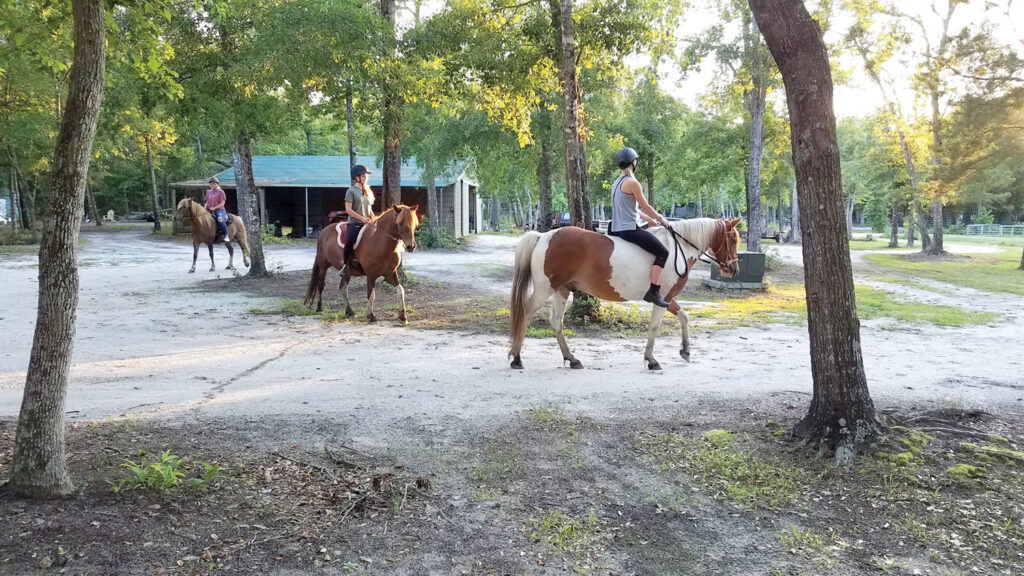
Even though every visitor won’t be a volunteer and every volunteer won’t buy a wild horse, the Immens share their knowledge with all. They have also observed their audiences over the years and added accommodations for different age groups and personality types to their agritourism offerings.
Wild Horse Village provides a year-round entertainment zone with a retail store, saloon with food and concessions, a jailhouse with costumes for photos, a chapel, a schoolhouse, and a bunkhouse that can be found on Airbnb. There are also other kid-attractive items including interactive toy riding horses and a pony train.
In 2023, a petting zoo was added with chickens, ducks, different breeds of bunnies, goats, and lambs. Sue says they didn’t realize how many kids would visit the farm, and the petting zoo was a welcome addition.
Down the driveway, four RV spots are spaced between the trees for those who want to camp for a night or two. They’ve even found a spot for honeybee hives.
A popular public fundraising event each Sunday in October includes hayrides, a pumpkin patch, pumpkin painting, and pony petting. A public holiday market with crafts and gifts is held in the Christmas season.
Where the Wild Herds Are
Nine states in the Eastern United States are home to more than 10,000 mustangs, a mixed breed primarily descended from horses brought to America by the Spanish.
North Carolina has the most locations with a total of five herds. Sue Immen provides videos and guides to find these majestic creatures in each location — Corolla, Ocracoke, Cedar Island, Shackleford Banks, and Rachel Carson Reserve (just south of Beaufort in Carteret County).
Maryland, Virginia, South Carolina, Georgia, West Virginia, Kentucky, Missouri, and Louisiana are other Eastern states with wild horses. All except Kentucky and West Virginia have programs that manage the herds.
In Kentucky and West Virginia, research shows that most of the free roaming horses are on remote mountain lands where unwanted horses are released. No birth control measures are in place, and local citizens sometimes get involved to provide supplemental food and water.
Several of the Wild Horse Ambassadors
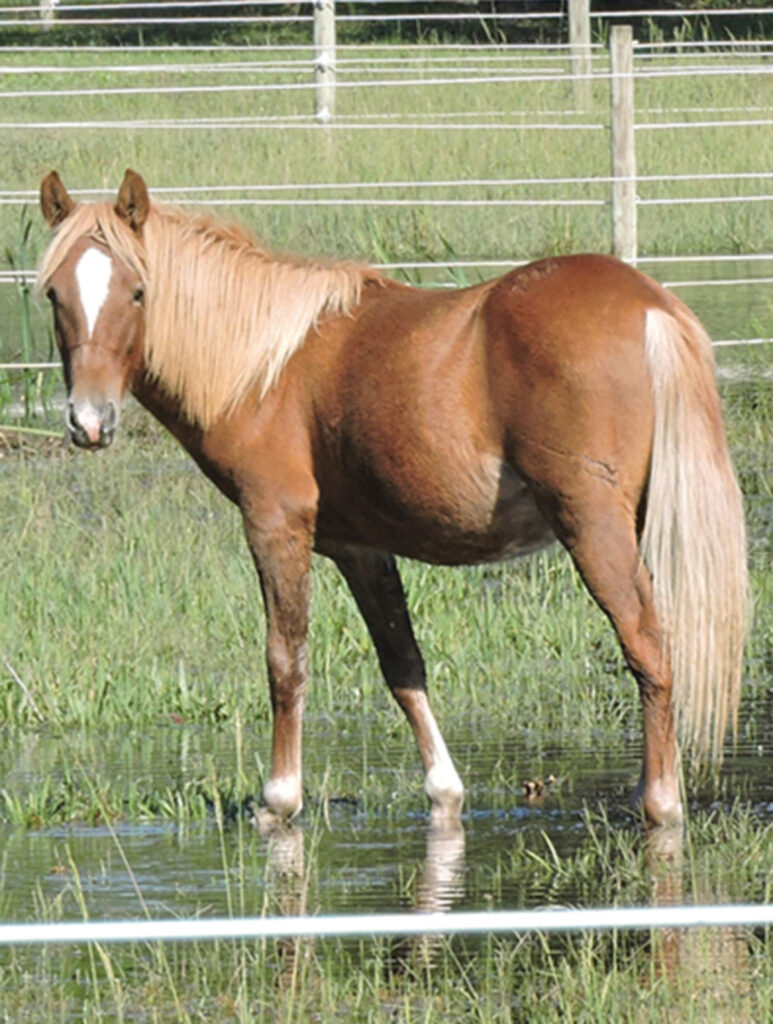
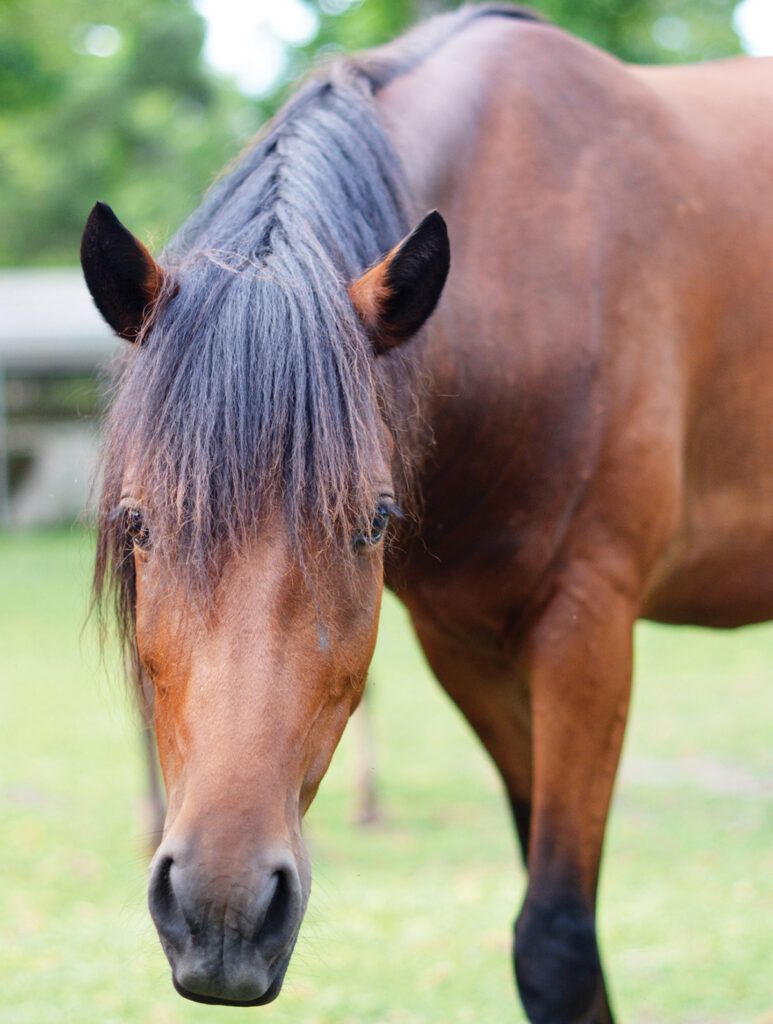
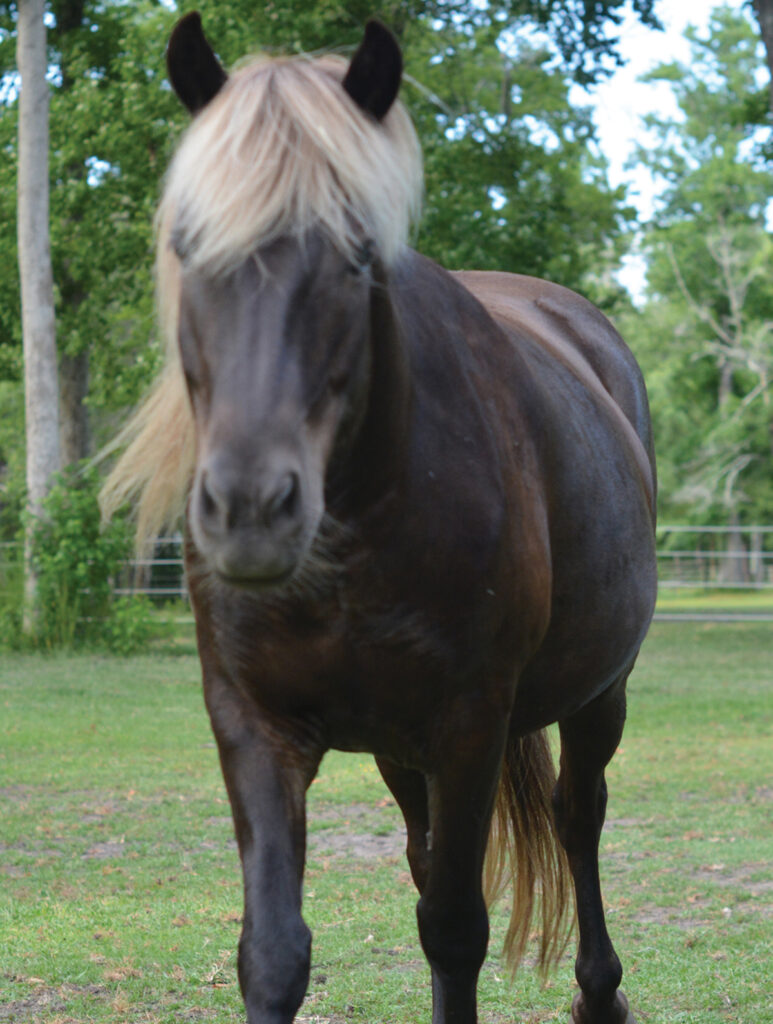
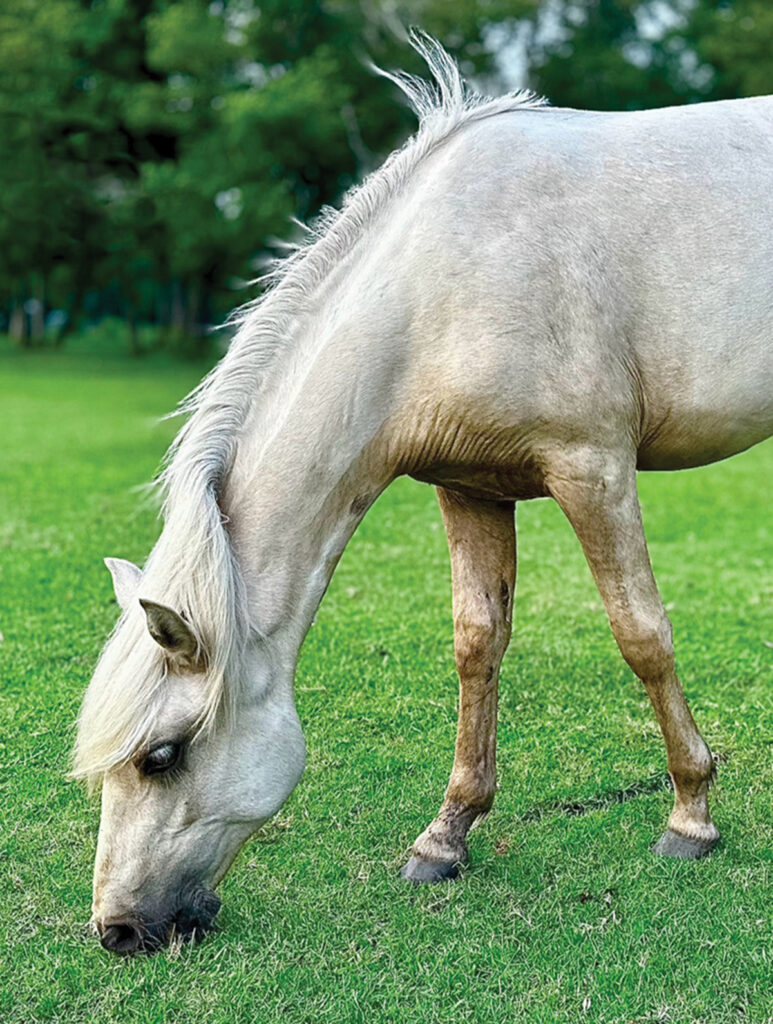
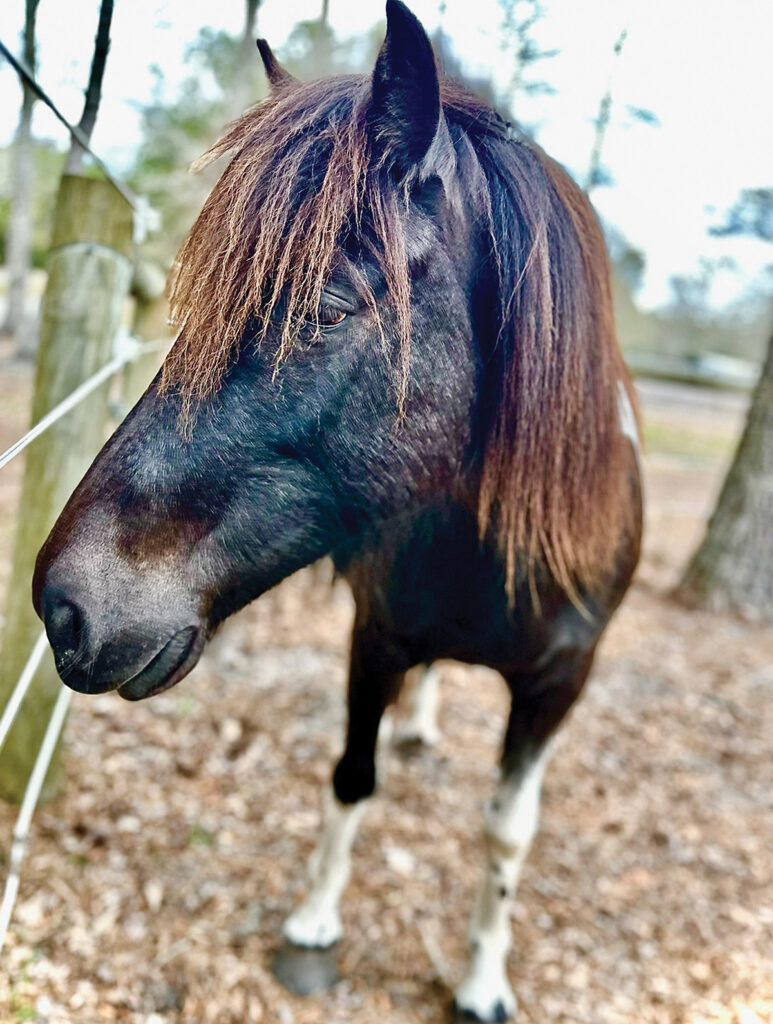
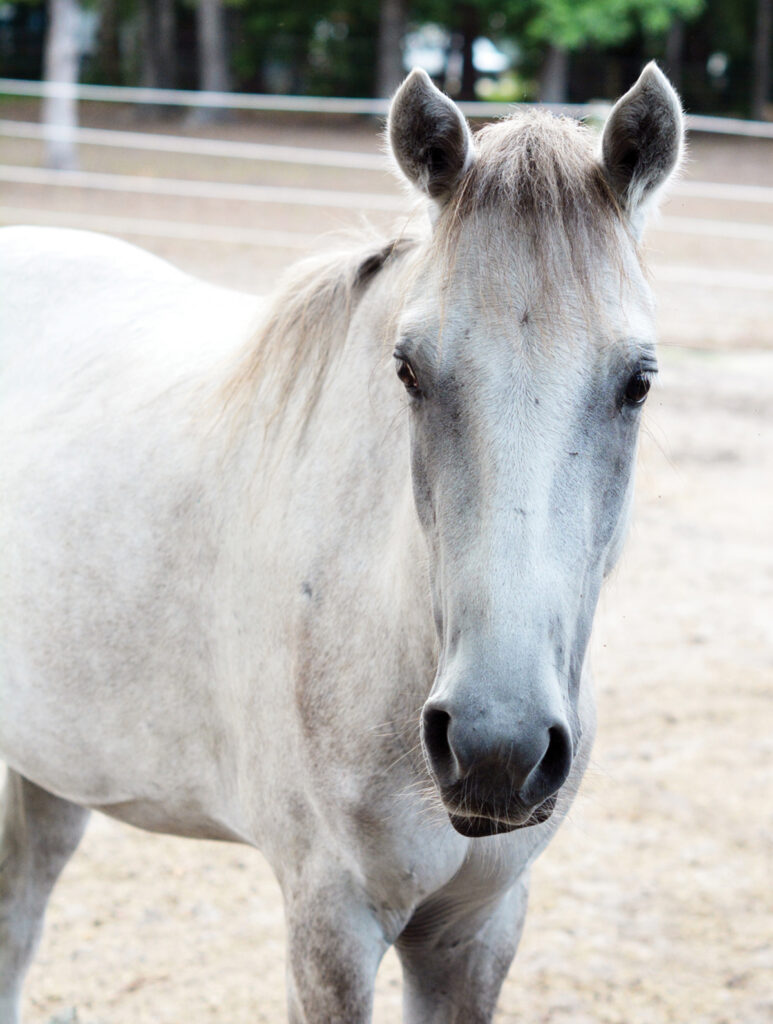
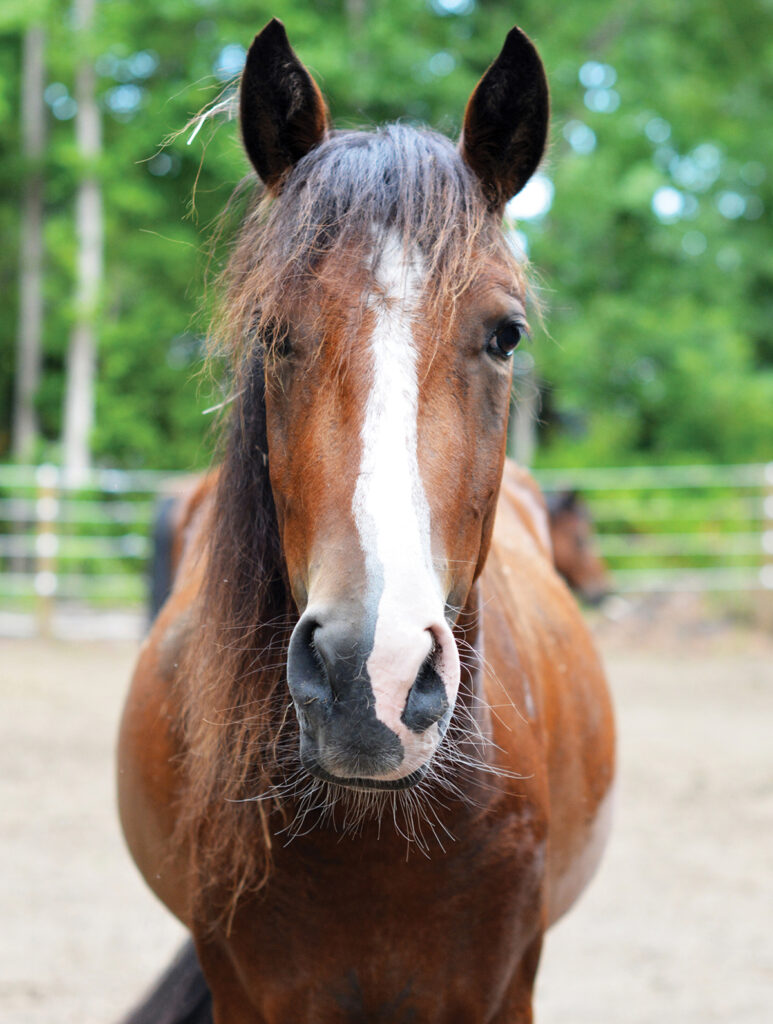
1) Sunny: Born wild in 2014 on Assateague Island, Chincoteague, Virginia; acquired at auction; chestnut gelding; sired by Surfer Dude (the most famous Chincoteague stallion to ever live); one of two ponies in Sue’s book series; gives great pony rides.
2) Biscuit: Born in 2021 in South Carolina; rare Hilton Head Marsh Tacky; bay gelding; an ambassador of an almost extinct breed; lives in pasture three with the Sassy 6.
3) Asa: Born wild in 2018 in Cedar Island, North Carolina; Cedar Island pony; acquired through special permission with the Hancock family and Cedar Island; dappled liver chestnut; boss of herd in pasture three as part of the Sassy 6.
4) Finnegan: Born wild in 2022 on Assateague Island, Chincoteague, Virginia; acquired at auction; owned by Susan Mosher; palomino gelding; has his own book and Instagram page.
5) Asher: Born wild in 2017 in Grayson Highlands, Virginia; Highlands pony; acquired at auction; black pinto gelding; great for pony rides; lives with the Super 6 in pasture two.
6) Shiloh: Born wild in 2021 in the Kisatchie National Forest, Louisiana; grey gelding; one of the two Crazy Cajuns.
7) Bonnie: Born wild in 2020 on Bureau of Land Management land in Nevada; bay mare; lives with her blind friend, 12-year-old local rescue Clyde.
